|
Books Should Be Free Loyal Books Free Public Domain Audiobooks & eBook Downloads |
|
|
Books Should Be Free Loyal Books Free Public Domain Audiobooks & eBook Downloads |
|
Humorous Books |
|---|
|
Book type:
Sort by:
View by:
|
By: John Galt (1779-1839) | |
|---|---|
 The Provost
The Provost
| |
By: Percy Hetherington Fitzgerald (1834-1925) | |
|---|---|
 Bardell v. Pickwick
Bardell v. Pickwick
| |
By: Artemus Ward (1834-1867) | |
|---|---|
 The Complete Works of Artemus Ward — Part 1: Essays, Sketches, and Letters
The Complete Works of Artemus Ward — Part 1: Essays, Sketches, and Letters
| |
By: William H. Mallock (1849-1923) | |
|---|---|
 Every Man His Own Poet Or, The Inspired Singer's Recipe Book
Every Man His Own Poet Or, The Inspired Singer's Recipe Book
| |
By: Percival Leigh (1813-1889) | |
|---|---|
 The Comic Latin Grammar A new and facetious introduction to the Latin tongue
The Comic Latin Grammar A new and facetious introduction to the Latin tongue
| |
By: T. W. H. Crosland (1865-1924) | |
|---|---|
 The Old Man's Bag
The Old Man's Bag
| |
By: Thomas Chandler Haliburton (1796-1865) | |
|---|---|
 The Attaché; or, Sam Slick in England
The Attaché; or, Sam Slick in England
| |
By: Barry Pain (1824-1928) | |
|---|---|
 If Winter Don't
If Winter Don't
Barry Pain's parody takes a sharp knife to ASM Hutchinson's best selling novel 'If Winter Comes'.We follow the professional and marital decline of long suffering (and loving it), Luke Sharper, as his marriage to Mabel flounders while his love for Jona flourishes. It could only end in tears.....Or could it? ( | |
By: Charles Harrison (-1943) | |
|---|---|
 A Humorous History of England
A Humorous History of England
| |
By: Henry Austin Dobson (1840-1921) | |
|---|---|
 "You Bid Me Try"
"You Bid Me Try"
Henry Austin Dobson, commonly Austin Dobson, was an English poet and essayist. His official career was uneventful, but as a poet and biographer he was distinguished. Those who study his work are struck by its maturity.It was about 1864 that he turned his attention to writing original prose and verse, and some of his earliest work was his best. It was not until 1868 that the appearance of St Paul’s, a magazine edited by Anthony Trollope, gave Harry Dobson an opportunity and an audience; and during the next six years he contributed some of his favourite poems, including “Tu Quoque,” “A Gentleman of the Old School,” “A Dialogue from Plato,” and “Une Marquise... | |
By: C. E. (Clara Elizabeth) Fanning (1878-1938) | |
|---|---|
 Toaster's Handbook Jokes, Stories, and Quotations
Toaster's Handbook Jokes, Stories, and Quotations
| |
By: Donald Ogden Stewart | |
|---|---|
 Perfect Behavior
Perfect Behavior
A humorous guide to manners and etiquette for ladies and gentlemen in a social "crises," published in 1922. (Introduction by Samanem) | |
By: Don Marquis (1878-1937) | |
|---|---|
 Danny's Own Story
Danny's Own Story
Danny is the proverbial basket-on-the-doorstep baby, found by Hank and Elmira Walters, a childless couple who welcome him into their home because they need a new topic over which to bicker. Bicker they do, and fight just as often, from the day they attempt to settle on a name, to the day eighteen years later, when Danny and Hank come to blows and Danny leaves home in company with Dr. Kirby, bottler and supplier of the miracle elixir, Siwash Indian Sagraw. For years Danny wanders aimlessly--from Illinois to Indiana to Ohio, back to Illinois, then into Tennessee and points south--sometimes in company with Dr... | |
By: P. Hampson | |
|---|---|
 The Romance of Mathematics Being the Original Researches of a Lady Professor of GirthamCollege in Polemical Science
The Romance of Mathematics Being the Original Researches of a Lady Professor of GirthamCollege in Polemical Science
| |
By: W. S. Gilbert (d 1911) | |
|---|---|
 More Bab Ballads
More Bab Ballads
This is a subset of the first twelve poems from the second collection of Gilbert’s “Bab Ballads” – light verses poking fun at the life and people of his time in Gilbert’s unique “topsy-turvey” style. The epitaph on his memorial on the Victoria Embankment in London is “HIS FOE WAS FOLLY AND HIS WEAPON WIT”, an epitaph amply exemplified in these verses. | |
By: W. S. (William Schwenck) Gilbert (1836-1911) | |
|---|---|
 Bab Ballads and Savoy Songs
Bab Ballads and Savoy Songs
| |
By: Al. G. (Alfred Griffith) Field (1852-) | |
|---|---|
 Watch Yourself Go By
Watch Yourself Go By
| |
By: Stephen Lucius Gwynn (1864-1950) | |
|---|---|
 Irish Books and Irish People
Irish Books and Irish People
| |
By: Will Rogers (1879-1935) | |
|---|---|
 Rogers-isms, the Cowboy Philosopher on the Peace Conference
Rogers-isms, the Cowboy Philosopher on the Peace Conference
| |
By: Mark Lemon (1809-1870) | |
|---|---|
 How to Make a Man of Consequence
How to Make a Man of Consequence
Mark Lemon had a natural talent for journalism and the stage, and, at twenty-six, retired from less congenial business to devote himself to the writing of plays. More than sixty of his melodramas, operettas and comedies were produced in London, whilst at the same time he was contributing to a wide variety of magazines and newspapers, and was founding editor of both Punch and The Field. | |
By: Henry Wallace Phillips (1869-1930) | |
|---|---|
 Red Saunders' Pets and Other Critters
Red Saunders' Pets and Other Critters
| |
 Red Saunders His Adventures West & East
Red Saunders His Adventures West & East
| |
 Mr. Scraggs
Mr. Scraggs
| |
By: J. Thorne Smith, Jr. (1892-1934) | |
|---|---|
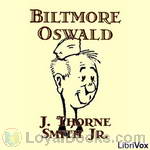 Biltmore Oswald
Biltmore Oswald
The hilarious diary of a young man's recruitment into, and service in a navy, which, though well equipped and disciplined, remains woefully ill prepared for his arrival and dubious contribution. (Introduction by Nigel Boydell) | |
By: Thomas Hood (1799-1845) | |
|---|---|
 Workhouse Clock
Workhouse Clock
There were scarcely any events in the life of Thomas Hood. One condition there was of too potent determining importance—life-long ill health; and one circumstance of moment—a commercial failure, and consequent expatriation. Beyond this, little presents itself for record in the outward facts of this upright and beneficial career, bright with genius and coruscating with wit, dark with the lengthening and deepening shadow of death. | |
By: George A. (George Alexander) Morton (1857-) | |
|---|---|
 Law and Laughter
Law and Laughter
| |
By: Mary Belle Freeley | |
|---|---|
 Fair to Look Upon
Fair to Look Upon
| |
By: F. Anstey (1856-1934) | |
|---|---|
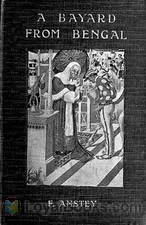 Bayard from Bengal
Bayard from Bengal
The estimable gentleman, Chunder Bindabun Bhosh, ESQ., B.A., travels from his native India to England, with his impeccable English and manners, which immediately mark him as a foreigner, and embarks on an enviable program of escapades. These stories are the product of the fertile imagination of Hurry Bungsho Jabberjee, B.A., a nom de plume for the humorist F. Anstey, which is a further nom de plume for Thomas Anstey Guthrie. Whether rescuing a nubile maiden from a charging bull or falling in love with said nubile maiden, Mr. Bosh, B. A. cannot help but perform with the requisite humor to engage our attention. | |
By: George W. Carleton (1832-1901) | |
|---|---|
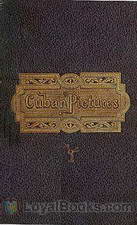 Our Artist in Cuba Fifty drawings on wood. Leaves from the Sketch-book of a traveler, During the Winter of 1864-5.
Our Artist in Cuba Fifty drawings on wood. Leaves from the Sketch-book of a traveler, During the Winter of 1864-5.
| |
By: Clarence Day (1874-1935) | |
|---|---|
 This Simian World
This Simian World
| |
By: Lucretia P. (Lucretia Peabody) Hale (1820-1900) | |
|---|---|
 The Peterkin Papers
The Peterkin Papers
| |
By: Henry Walcott Boynton (1869-1947) | |
|---|---|
 The Golfer's Rubaiyat
The Golfer's Rubaiyat
| |
By: Wallace Irwin (1876-1959) | |
|---|---|
 The Rubaiyat of Omar Khayyam Jr.
The Rubaiyat of Omar Khayyam Jr.
| |
 The Love Sonnets of a Hoodlum
The Love Sonnets of a Hoodlum
| |
By: Heywood Broun (1888-1939) | |
|---|---|
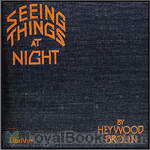 Seeing Things at Night
Seeing Things at Night
This Book is a collection of humorous short stories which describe the comedy in everyday things and situations. | |
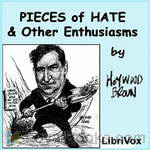 Pieces of Hate and other Enthusiasms
Pieces of Hate and other Enthusiasms
This book is a collection of humorous short stories about ordinary instances in daily life. We learn many interesting things about life, such as how to court women successfully, what it feels like to be a god, and why sometimes it would be a good idea to exchange one's own newborn baby for a better one at the hospital. | |
By: David Ross Locke (1833-1888) | |
|---|---|
 "Swingin Round the Cirkle." His Ideas Of Men, Politics, And Things, As Set Forth In His Letters To The Public Press, During The Year 1866.
"Swingin Round the Cirkle." His Ideas Of Men, Politics, And Things, As Set Forth In His Letters To The Public Press, During The Year 1866.
| |
By: Metta Victoria Fuller Victor (1831-1885) | |
|---|---|
 The Blunders of a Bashful Man
The Blunders of a Bashful Man
| |
 The Bad Boy At Home And His Experiences In Trying To Become An Editor - 1885
The Bad Boy At Home And His Experiences In Trying To Become An Editor - 1885
| |
By: James Bell Salmond (1891-1958) | |
|---|---|
 My Man Sandy
My Man Sandy
| |
By: Knight Russ Ockside (1830-1898) | |
|---|---|
 History and Records of the Elephant Club
History and Records of the Elephant Club
Mortimer Q. Thomson (September 2, 1832 – June 25, 1875) was an American journalist and humorist who wrote under the pseudonym Q. K. Philander Doesticks. He was born in Riga, New York and grew up in Ann Arbor, Michigan. He attended Michigan University in Ann Arbor, but was expelled along with several others either for his involvement in secret societies[1] or for "too much enterprise in securing subjects for the dissecting room."[2] After a brief period working in theater, he became a journalist and lecturer... | |
By: H. C. (Harry Charles) Witwer (1890-1929) | |
|---|---|
 Alex the Great
Alex the Great
| |
 Kid Scanlan
Kid Scanlan
| |
By: Jesse Lynch Williams (1871-1929) | |
|---|---|
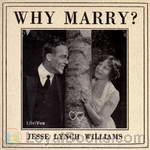 Why Marry?
Why Marry?
Why Marry? is a comedy, which "tells the truth about marriage". We find a family in the throes of proving the morality of marriage to a New Age Woman. Can the family defend marriage to this self-supporting girl? Will she be convinced that marriage is the ultimate sacredness of a relationship or will she hold to her perception that marriage is the basis of separating two lovers."Why Marry?" won the first Pulitzer Prize for Drama. | |
By: Richard D. Blackmore (1654?-1729) | |
|---|---|
 Essay upon Wit
Essay upon Wit
| |
By: Steele Rudd (1868-1935) | |
|---|---|
 On Our Selection
On Our Selection
The humorous account of Dad and Dave and the rest of the Rudd clan as they attempt to carve a farming 'selection' out of the Australian wilderness in spite of fire, famine, snakebite, and a loony hired hand. | |
By: Susan Edmonstoune Ferrier | |
|---|---|
 Marriage, Volume 1
Marriage, Volume 1
“Love!–A word by superstition thought a God; by use turned to an humour; by self-will made a flattering madness.” – Alexander and Campaspe. Lady Juliana, the indulged and coddled seventeen (”And a half, papa”) year old daughter of the Earl of Cortland, is betrothed by her father to a wealthy old Duke who can give her every luxury. She instead runs away and marries her very handsome but penniless lover. Very soon, they are forced to travel to Scotland to live with his quirky family in a rundown “castle” in the barren wilderness. Can this marriage survive?(Summary by P.Cunningham) | |
By: Will M. (Will Martin) Cressy (1863-1930) | |
|---|---|
 Continuous Vaudeville
Continuous Vaudeville
| |
By: John Wight (1866-1944) | |
|---|---|
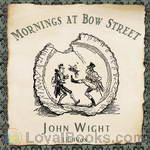 Mornings at Bow Street
Mornings at Bow Street
This is a collection of various articles found in Morning Herald columns. Some are found interesting, some may be hilarious! The 84 pieces of this book are actual reports throughout the 1870s newspaper written by the reporter, John Wight and Illustrated by George Cruikshank | |
By: Henry Carey (1687?-1743) | |
|---|---|
 A Learned Dissertation on Dumpling (1726) [and] Pudding and Dumpling Burnt to Pot. Or a Compleat Key to the Dissertation on Dumpling (1727)
A Learned Dissertation on Dumpling (1726) [and] Pudding and Dumpling Burnt to Pot. Or a Compleat Key to the Dissertation on Dumpling (1727)
| |
By: Christopher Morley (1890-1957) | |
|---|---|
 In the Sweet Dry and Dry
In the Sweet Dry and Dry
Written just before Prohibition to entail the possible troubles that might happen en route. Both sides of the argument, or battle as the case may be, strike out with various over-top methods like legislating most fruits and vegetables as unsafe or intoxicating large groups with breathable alcohol. | |
By: Timothy Templeton | |
|---|---|
 The Adventures of My Cousin Smooth
The Adventures of My Cousin Smooth
| |
By: Q. K. Philander Doesticks (1832-1875) | |
|---|---|
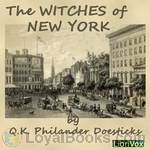 The Witches of New York
The Witches of New York
A humorous account of visits to various fortune tellers, card readers, seers, and other "witches" of New York. Written by Q.K. Philander Doesticks (a.k.a.Mortimer Thomson). | |
By: James Montgomery Flagg (1877-1960) | |
|---|---|
 Why They Married
Why They Married
| |
By: Francis Marion Wing (1873-1956) | |
|---|---|
 "The Fotygraft Album" Shown to the New Neighbor by Rebecca Sparks Peters Aged Eleven
"The Fotygraft Album" Shown to the New Neighbor by Rebecca Sparks Peters Aged Eleven
| |
By: Richard Doyle (1824-1883) | |
|---|---|
 The Foreign Tour of Messrs. Brown, Jones and Robinson Being the History of What They Saw, and Did, in Belgium, Germany, Switzerland & Italy.
The Foreign Tour of Messrs. Brown, Jones and Robinson Being the History of What They Saw, and Did, in Belgium, Germany, Switzerland & Italy.
| |
By: Robert Fitzgerald | |
|---|---|
 The Statesmen Snowbound
The Statesmen Snowbound
| |
By: Wardon Allan Curtis (1867-1940) | |
|---|---|
 The Strange Adventures of Mr. Middleton
The Strange Adventures of Mr. Middleton
| |
By: Herbert George Jenkins (1876-1923) | |
|---|---|
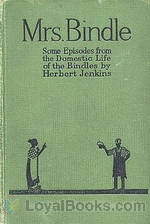 Mrs. Bindle
Mrs. Bindle
Herbert Jenkins' most popular fictional creation was Mr. Joseph Bindle, who first appeared in a humorous novel in 1916 and in a number of sequels. In the preface to the books, T. P. O'Connor said that "Bindle is the greatest Cockney that has come into being through the medium of literature since Dickens wrote Pickwick Papers". The stories are based on the comedic drama of life at work, at home and all the adventures that take place along the way. It becomes clear as the stories progress that Bindle would not be who he is without Mrs. Bindle, and this book seeks to tell the stories of the Bindles from the distaff point of view. | |
By: J. L. Duff | |
|---|---|
 The Rubaiyat of Ohow Dryyam With Apologies to Omar
The Rubaiyat of Ohow Dryyam With Apologies to Omar
| |
By: A. D. (Alfred Denis) Godley (1856-1925) | |
|---|---|
 The Casual Ward academic and other oddments
The Casual Ward academic and other oddments
| |
By: John Cecil Clay (1875-1930) | |
|---|---|
 Happy Days
Happy Days
| |
By: R. D. (Robert Dalziel) Cumming (1871-1958) | |
|---|---|
 Skookum Chuck Fables Bits of History, Through the Microscope
Skookum Chuck Fables Bits of History, Through the Microscope
| |
By: Lisle de Vaux Matthewman (1867-) | |
|---|---|
 Crankisms
Crankisms
| |
By: Kenneth McGaffrey (??-1938) | |
|---|---|
 The Sorrows of a Show Girl
The Sorrows of a Show Girl
Originally printed in The Morning Telegraph in New York, this is the story of Miss Sabrina, the show girl, and her ups and downs with the unpredictable theatrical industry and the Great White Way, the lights and glamour of Broadway. "In order to set myself right with both the public and the vast army of Sabrinas that add youth and beauty to our stage, and brilliancy and gaiety to our well known cafes, I wish to say that she is all that she should be...”- Kenneth McGaffrey | |
By: F. C. (Francis Cowley) Burnand (1836-1917) | |
|---|---|
 Happy-Thought Hall
Happy-Thought Hall
| |
By: Mary Wallace Bundy Little (1857-) | |
|---|---|
 The Rubaiyat of a Huffy Husband
The Rubaiyat of a Huffy Husband
| |
By: Unknown | |
|---|---|
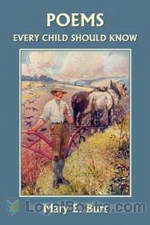 Poems Every Child Should Know
Poems Every Child Should Know
A treasure trove of more than two hundred poems, this gem of an anthology compiled by Mary E Burt is indeed a most valuable set of poems to read or listen to. Published in 1904, Poems Every Child Should Know contains some well-loved verses like Thomas Gray's Elegy Written in a Country Churchyard, Lewis Carroll's delightful parody Father William, Felicia Hemans' deeply-moving Casablanca and other favorites. It also has lesser-known but equally beautiful pieces like Henry Wadsworth Longfellow's The Arrow and The Song, Robert Browning's The Incident of the French Camp, Eugene Field's nonsense lyrics Wynken, Blynken and Nod and a host of other wonderful verses... | |
By: Marshall Pinckney Wilder (1859-1915) | |
|---|---|
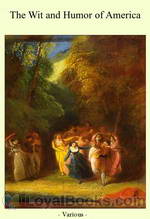 The Wit and Humor of America
The Wit and Humor of America
Light hearted, entertaining and amusing as it takes on contemporary American life would best describe The Wit and Humor of America by Marshall Pinckney Wilder whish is a compilation of humorous passages from various works of American literature. Ranging from Harriet Beecher Stowe's Dinah's Kitchen to Dislikes by Oliver Wendell Holmes, Little Orphint Annie by James Whitcomb Riley, The Auto Rubaiyat by Reginald Wright Kauffman, Garden Ethics by Charles Dudley Warner and Morris and the Honorable Tim by Myra Kelley and many more delightful pieces, the book is indeed a treasure trove of humor... | |
By: Various | |
|---|---|
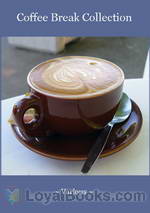 Coffee Break Collection
Coffee Break Collection
If you find yourself with nothing particular to do in an airport, train or bus or you've got a quiet evening to yourself in a hotel room or you're facing the delicious prospect of an extended lunch or tea break, why not pick up Coffee Break Collection 001 and enjoy the experience? This anthology has a selection of humorous pieces guaranteed to keep you entertained. Opening with a master of the genre, PG Wodehouse, the first story is a pseudo-scholarly treatise on football captains! A delightful piece follows – Beyond Pandora by RJ Martin with its memorable opening line, “The ideal way to deal with a pest... | |
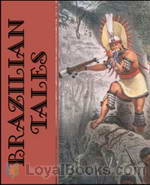 Brazilian Tales
Brazilian Tales
“Brazilian Tales” is a collection of six short stories selected by Isaac Goldberg as best representative of the Brazilian Literature of his period – the end of the 19th century. His comprehensive preface aims at familiarizing the reader with a literature that was – and still is – virtually unknown outside the boundaries of its own land, and the pieces chosen by Goldberg to be translated belong to writers that reached popularity and appreciation while still alive. This “pioneer volume”, as the translator himself puts it, still keeps its charm and interest as a way of offering to the English speaking public some “sample cases” of Brazilian Literature. | |
By: Anonymous | |
|---|---|
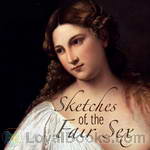 Sketches Of The Fair Sex
Sketches Of The Fair Sex
Sketches of the fair sex, in all parts of the world. To which are added rules for determining the precise figure, the degree of beauty, the habits, and the age of women, notwithstanding the aids and disguise of dress. It is our design to present a pleasing and interesting miscellany, which will serve to beguile the leisure hour, and will at the same time couple instruction with amusement. We have used but little method in the arrangement: Choosing rather to furnish the reader with a rich profusion... | |
 English as She is Wrote
English as She is Wrote
"...Showing Curious ways in which the English Language may be made to convey Ideas or obscure them." A collection of unintentionally humorous uses of the English language. Sections of the work: How she is wrote by the Inaccurate, By Advertisers and on Sign-boards, For Epitaphs, By Correspondents, By the Effusive, How she can be oddly wrote, and By the Untutored. | |
By: Various | |
|---|---|
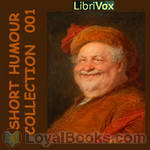 Short Humor Collection
Short Humor Collection
This is a collection of short humorous works first published before 1923. | |
By: Unknown | |
|---|---|
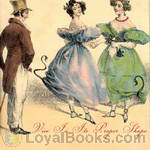 Vice in its Proper Shape
Vice in its Proper Shape
Cautionary tales of the transmigration of the souls of naughty boys and girls, as elucidated by the mysterious Bramin, Mr Wiseman: “Having been gifted with the faculty of distinguishing those animals which are now animated by the souls of such human beings as formerly degraded themselves to a level with the unthinking brutes, I have taken the pains to provide a collection of beasts, birds, &c. most of which are inhabited by the souls of some naughty masters or misses, who died in the neighbourhood.” (David Barnes, quoting the Introduction) | |
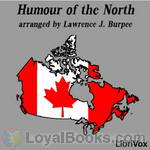 Humour of the North
Humour of the North
Some day an enterprising editor may find time to glean from the whole field of Canadian literature a representative collection of wit and humour. . . . The present little collection obviously makes no such ambitious claim. It embraces, however, what are believed to be representative examples of the work of some of our better-known writers, many of which will no doubt be quite familiar to Canadian readers, but perhaps none the less welcome on that account. | |
By: Richmal Crompton (1890-1969) | |
|---|---|
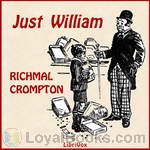 Just William
Just William
William is a mischievous eleven year old who is puzzled by the adult world, which is no less puzzled by him. The humor is gentle and pleasing. The series of books is better known in the United Kingdom than in the U.S. ( | |
By: Chester K. Steele (1862-1930) | |
|---|---|
 The Diamond Cross Mystery
The Diamond Cross Mystery
Colonel Ashley is confronted with a difficult case: The proprietor of a jewelry shop is found murdered, and a valuable diamond cross is stolen. Whodunnit, and how can the Colonel's expertise in fishing help to solve the case? | |
By: Owen Wister (1860-1938) | |
|---|---|
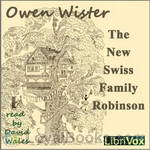 The New Swiss Family Robinson
The New Swiss Family Robinson
A parody of its famous predecessor, this short piece was written by Owen Wister for the Harvard Lampoon | |
By: Anonymous | |
|---|---|
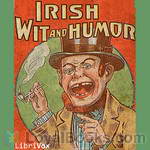 Irish Wit and Humor
Irish Wit and Humor
Excerpted anecdotes from the biographies of Swift, Curran, O'Leary and O'Connell, relating humorous snippets of politics in 18th and 19th century Ireland. For some these may be poignant in addition to being humorous and for others they may be humorous in addition to being poignant. ( | |
By: Carroll Watson Rankin (1864-1945) | |
|---|---|
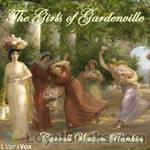 The Girls of Gardenville
The Girls of Gardenville
It is pleasant to have another book about a group of merry, natural girls, who have the attractions of innocence and youthful faults. "The Sweet Sixteen" Club made fudge, and went on picnics, and behaved just as jolly, nice maidens should. (The Outlook, vol. 82, Mar. 24, 1906) | |
By: Barry Pain (1864-1928) | |
|---|---|
 Eliza
Eliza
A gentle, yet deliciously humourous series of anecdotes following the life of the main character and his wife, Eliza. | |
By: Richard Marsh (1857-1915) | |
|---|---|
 Amusement Only
Amusement Only
This is a collection of 12 short stories of mystery and humor, which are, as the title says, for amusement only. | |
By: A. A. Milne (1882-1956) | |
|---|---|
 The Sunny Side
The Sunny Side
The Sunny Side is a collection of short stories and essays by A. A. Milne. Though Milne is best known for his classic children's books, especially Winnie The Pooh, he also wrote extensively for adults, most notably in Punch, to which he was a contributor and later Assistant Editor. The Sunny Side collects his columns for Punch, which include poems, essays and short stories, from 1912 to 1920. Wry, often satirical and always amusingly written, these pieces poke fun at topics from writing plays to lying about birdwatching. They vary greatly in length so there is something for everyone. | |
By: Arnold Bennett (1867-1931) | |
|---|---|
 Self and Self-management: Essays about Existing
Self and Self-management: Essays about Existing
Bennett's essays always provide food for thought and bring a wry smile to the lips. Human nature, it appears, changes little over the ages, and Bennett's writing stands the test of time, though in the case of some of the essays in this eclectic collection, it is well to remember that they were written at the time of the First World War and the fight for women's suffrage. | |
By: Ellis Parker Butler (1869-1937) | |
|---|---|
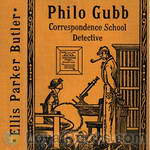 Philo Gubb, Correspondence-School Detective
Philo Gubb, Correspondence-School Detective
Philo Gubb, not being content with his job as wallpaper-hanger, has higher aspirations: to become a detective, just like Sherlock Holmes. To that end, he enrolls in a correspondence course, where he gets lessons through the mail as well as the necessary disguises for a detective. Philo Gubb, not being really clever or intuitive, or even looking good in those disguises, gets involved in one case after the other - and sooner or later happens to stumble on and solve the crime... Each of these stories... | |
By: Saki (1870-1916) | |
|---|---|
 The Toys of Peace
The Toys of Peace
This is the fifth collection of short stories by Saki (H.H. Munro), and was published posthumously in 1923. Even so, many of the stories are quite up to the standard of those collected earlier. | |
By: Richard Harding Davis (1864-1916) | |
|---|---|
 The Make-Believe Man
The Make-Believe Man
Adventure was what our protagonist was looking for, when he boarded the steamer "Patience" for his holiday, and when one has a man with such a vivid imagination like Joseph Forbes Kinney as a travel companion, who seems to find adventures at every turn of the road (and if not, he manufactures them), the two travellers are sure to stumble into trouble... | |
By: Various | |
|---|---|
 The Jargon File, Version 4.2.2, 20 Aug 2000
The Jargon File, Version 4.2.2, 20 Aug 2000
| |
By: G. K. Chesterton (1874-1936) | |
|---|---|
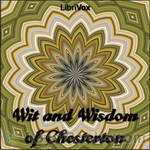 Wit and Wisdom of Chesterton
Wit and Wisdom of Chesterton
In this collection, Bevis Hillier has put together some of Chesterton's essays in "The Defandant", "Varied Types" and "Tremendous Trifles". These 12 pieces were chosen to giving a peek into the margins of Chesterton's work and give a sense of the distinctive flavor of his mind. They were also chosen with an eye to showing what a complex and fascinating character he was. | |
By: Thomas Hardy (1840-1928) | |
|---|---|
 The Hand of Ethelberta
The Hand of Ethelberta
Ethelberta was raised in humble circumstances but became a governess and consequently, at the age of 18, married well. However, her husband died two weeks after the wedding. Her father-in-law, Lord Petherwin, died shortly afterwards. Ethelberta (now 21) lives with her mother-in-law, Lady Petherwin. In the three years that have elapsed since her marriage, Ethelberta has been treated to foreign travel and further privileges by Lady Petherwin but restricted from seeing her own family. The story follows Ethelberta's career as a famous poetess and storyteller... | |
By: Joel Chandler Harris (1845-1908) | |
|---|---|
 Uncle Remus Returns
Uncle Remus Returns
Uncle Remus tells these 11 stories but to the son of the original "little boy" who is visiting his grandmother on the plantation. As always Uncle Remus can be relied upon to provide funny and pointed insight into human personalities through his story telling. These were all published in the Uncle Remus magazine from 1905 and 1906 and gathered together in this book by the author. Note that these stories are reflections of another period in time and some of the language used would definitely be considered rude and/or offensive now. In keeping with the desire to present the text as the author wrote it, nothing has been changed or edited. | |
By: A. A. Milne (1882-1956) | |
|---|---|
 Once a Week
Once a Week
A collection of short stories by famed Winnie the Pooh author, A.A. Milne. This charmingly humorous work from Milne's earlier writing period was first published in Punch magazine. | |
By: Arnold Bennett (1867-1931) | |
|---|---|
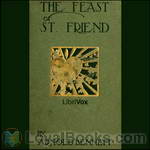 The Feast of St. Friend
The Feast of St. Friend
In The Feast of St. Friend, a Christmas book, Arnold Bennett shares his views on Christmas as the season of goodwill. As always, Bennett's writing includes some thought-provoking ideas liberally spiced with his wry sense of humour, and as always too, you can barely believe it was written so long ago. This was published exactly 100 years ago, in 1911. (Introduction by Ruth Golding) | |
By: Dorothy Canfield Fisher (1879-1958) | |
|---|---|
 The Bent Twig
The Bent Twig
Semi-autobiographical series of incidents in the life of an intellectual American family in the late 19th - early 20th Century as seen by favored daughter, Sylvia Marshall. Her father is an economics professor in a Midwestern state university and she is following in his inquisitive footsteps. Canfield writes this in a matter-of-fact manner with Tarkingtonesque good humor. | |
By: Cal Stewart (1856-1919) | |
|---|---|
 Uncle Josh's Punkin Centre Stories
Uncle Josh's Punkin Centre Stories
A collection of comedic short stories from the perspective of an old country man. | |
By: A. A. Milne (1882-1956) | |
|---|---|
 Not That It Matters
Not That It Matters
More of the witty, wry, and deliciously wicked essays and articles written by Milne. Most people know him as the creator of Winnie The Pooh, but he worked for many years as editor of Punch Magazine and these are some of his best. Not That It Matters is a collection of over 40 of these short stories and articles. Not That It Matters collects his columns for Punch, which include poems, essays and short stories, from 1912 to 1920. Most of his writing pokes fun, both gentle and not so gentle at a variety of topics... | |
By: George Horace Lorimer (1869-1937) | |
|---|---|
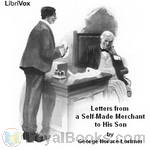 Letters from a Self-Made Merchant to His Son
Letters from a Self-Made Merchant to His Son
Being the Letters written by John Graham, Head of the House of Graham & Company, Pork-Packers in Chicago, familiarly known on 'Change as "Old Gorgon Graham," to his Son, Pierrepont, facetiously known to his intimates as "Piggy." George Horace Lorimer was an American journalist and author. He is best known as the editor of The Saturday Evening Post. | |
By: Christopher Morley (1890-1957) | |
|---|---|
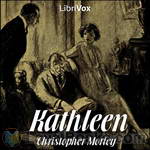 Kathleen
Kathleen
A group called the Scorpions, eight Oxford undergraduates, find a letter Kathleen wrote a letter to Joe at Oxford. They build up an image of Kathleen and Joe from the letter and set out to find and meet Kathleen. The competition between them leads to many entertainingly funny scenarios. | |
By: Stephen Leacock (1869-1944) | |
|---|---|
 My Discovery of England
My Discovery of England
"In the course of time a very considerable public feeling was aroused in the United States and Canada over this state of affairs. The lack of reciprocity in it seemed unfair. It was felt (or at least I felt) that the time had come when some one ought to go over and take some impressions off England. The choice of such a person (my choice) fell upon myself. By an arrangement with the Geographical Society of America, acting in conjunction with the Royal Geographical Society of England (to both of whom I communicated my proposal), I went at my own expense."And from thence follow the impressions of Canadian political economist and humourist, Stephen Leacock, after a lecturing visit to England. | |